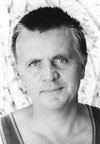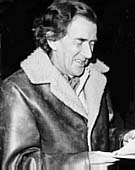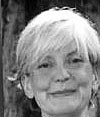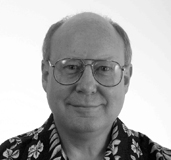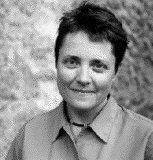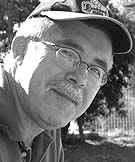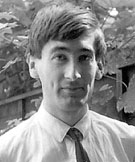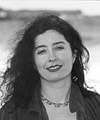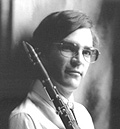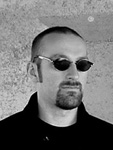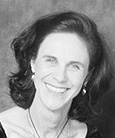
Ros Dunlop clarinetist |
The Tekee Tokee Tomak Tour
East Timor etc multimedia |
.gif)
Martin Wesley-Smith composer |
DONE!
general blurb |
concert repertoire |
lecture/demo topics |
pics |
schedule
Dunlop & Wesley-Smith bios |
e-mail Dunlop |
e-mail Wesley-Smith
see reviews of our Feb 6 2003 London concert and responses to our Oct 2003 USA tour
**
click here to download complete program notes, technical requirements, photos and other info
**
|
Ros Dunlop is one of Australia's leading clarinetists, especially of contemporary repertoire. Martin Wesley-Smith is one of Australia's best-known composers and multimedia artists. Ros has played, and many of Martin's pieces have been heard (and seen), in many parts of the world. On May 20 2002, East Timor, a country and people ravaged by Indonesian occupying forces from 1975 to 1999, became the world's newest nation. Dunlop, Wesley-Smith and East Timor - these are the three main elements of The Tekee Tokee Tomak Tour.
In 2002 we visited East Timor twice, giving concerts in Dili, Ermera, Hato Bulliko, Laga, Los Palos and Same. In 2003 we toured Great Britain, giving concerts in Manchester, Kent, Reading, Liverpool, Glasgow, Oxford, Kingston, York, London and, on the way home, Hong Kong. In September-October 2003 we gave concerts in the USA. We are now planning a second USA tour. This, too, will focus on East Timor, the program to include Martin's multimedia pieces X (about Xanana Gusmão), for clarinet & computer (1999), Welcome to the Hotel Turismo, for bass clarinet & computer (2000), and Tekee Tokee Tomak (2003), for clarinet & computer. Also in the repertoire: Merry-Go-Round, with images of Afghanistan by Australian artist George Gittoes, and Weapons of Mass Distortion, for clarinet & computer, about propaganda, doublespeak and lies. And a brand new piece about West Papua - Papua Merdeka, for bass clarinet & computer. The current world situation has made our concerts more relevant - urgent, even - than ever. Many people who witnessed our program on our last tour commented that even though they didn't know much about East Timor, they saw the pieces as a metaphor for many similar, more familiar situations. Our program asks, indirectly, fundamental questions about power, privilege and human rights. American composer Bill Brooks, who teaches at the University of York in England, wrote in an e-mail (Feb 6 2003):
Live clarinet, computer sounds, and stunning images of East Timor, many taken during the carnage of the Indonesian occupation ...
enquiries:
This tour has been supported by a Pathways grant from the Music Board of the Australia Council, the Australian Government's arts funding and advisory body, to which many thanks.

|
| an image from X for clarinet & CD-ROM: |  |
[click photo to enlarge] |
concert repertoire |
lecture/demo topics |
Dunlop & Wesley-Smith bios
schedule |
e-mail Ros |
e-mail Martin |
London review 1 |
London review 2
For more information, see her home page.
Ros Dunlop has been a strong advocate for the cause of new music for
the clarinet for most of her professional life. She has premiered many new compositions for clarinet and has had many written especially for her. She has performed throughout Australia, New Zealand, the UK, Europe and the USA, including a recital of Australian works at the International Clarinet Festival in New Orleans in August 2001. Her three solo CDs (Domino, Don Banks - A Tribute, and X) have received wide acclaim. As a member of the chamber duo Charisma, she premiered five multimedia works at the 2002 Darwin International Guitar Festival and released a self-titled CD of works for clarinet and cello. She is also a member of the clarinet duo Touchbass, with whom she premiered a number of newly commissioned works at the 2002 Australian National Clarinet Festival. On August 24 2005 she gave a solo recital at the International Clarinet Festival in Tokyo. She teaches clarinet at the Sydney Conservatorium of Music.
Martin Wesley-Smith is an eclectic composer at home in a diverse range of idioms. Two main themes dominate his music: the life, work and ideas of Lewis Carroll (e.g. the chamber piece Snark-Hunting, the choral piece Songs for Snark-Hunters, and the full-length choral music theatre piece Boojum!); and the plight of the people of East Timor (e.g. Kdadalak (For the Children of Timor) and VENCEREMOS!). A multimedia version of the "audio-visual music theatre" piece Quito - about schizophrenia and East Timor - has been performed many times in many countries by The Song Company. One of his pieces - For Marimba & Tape - is the most-performed piece of Australian so-called "serious art-music" (it exists in versions for other instruments, too, including For Clarinet & Tape). For many years Director of the Electronic Music Studio at the Sydney Conservatorium of Music, Wesley-Smith is now a full-time composer and duck-keeper.
from Dunlop and Wesley-Smith's concert tour of East Timor, March 2002 (click to enlarge):

|

|

|
|
Rob Wesley-Smith
with kids in Gleno [72K] |
audience in Ermera [58K]
photography © 2002 Martin Wesley-Smith |
Timorese young people
near Hato Bullico [128K] |
"I had complete strangers coming up, with tear-stained faces (saying) how powerful it was ..."
includes solo pieces, pieces for clarinet and/or bass clarinet & CD/electronics and multimedia pieces (about Afghanistan, East Timor, Iraq, USA and West Papua)
Using photographs by various photographers, including some we took ourselves in East Timor in 2002, this piece was premiered in Manchester on our 2003 tour of the UK and Hong Kong. David Morris described it, in Clarinet & Saxophone, Spring 2003, as a "portrayal of post-independence East Timor, full of smiling people and beautiful landscapes". Ros recently performed it in the presence of Dr. Mari Alkatiri, Chief Minister of East Timor.
Like all of Wesley-Smith's recent multimedia pieces, it requires a Macintosh computer (which we will bring with us), a data projector of some kind (readily available these days, but we will bring one of those, too), some sort of screen, and a stereo sound system.
images by various photographers
"Tekee Tokee Tomak" means, in a rough translation from the Tetum, "Let's get together and enjoy ourselves". This is what the East Timorese people are now trying to do in order to re-build their shattered lives and country.
photo by Ros Dunlop
... they went mad - they cried, and cheered (four times back to the stage, and I was beginning to get emotional too), and were spellbound. A couple of times - like in the cadenza, and right at the end before the 'Welcome to the Hotel T' comes back), it was SO quiet - it freaked me out ... I had complete strangers coming up, with tear-stained faces (saying) how powerful it was ...
cellist Rachel Scott after a 2002 performance of Turismo in London
images by various photographers
David Vance in The Sydney Morning Herald, August 13 1998, writing about Wesley-Smith's Timor piece Quito:
from a Timorese listener in Darwin to the ABC broadcast of Quito, May 6 1997:
Commissioned by American clarinetist F. Gerard Errante, this piece has been performed, by him and by Ros, many times in the USA. It was composed in 1999 as the Indonesian military-promoted militia carnage was raging across East Timor. At the time, resistance leader Xanana Gusmão (the "X" of the title) was in Cipinang Prison, Jakarta.
see reviews of a performance of "X" in London, Feb 6 2003
see, also, separate web page
images by various photographers
an audio-only version of this piece can be heard on Ros Dunlop's CD X:
with guest cellist or bass clarinetist
about Afghanistan & Afghan refugees, commissioned by Charisma with financial support from the Music Board of the Australia Council
David Morris: "... the evening was brought to a close with Merry-Go-Round, (Wesley-Smith's) treatment of contemporary Afghanistan. More scenes passed rapidly before us, including children and men having naive fun aboard a small home-made merry-go-round. This, we were told, was an allegory for the repeated invasions suffered by the people of Afghanistan, but it worked most powerfully as a striking reinforcement of common humanity."
this exists in a version for clarinet and/or one for clarinet and either bass clarinet or cello
photography by George Gittoes
George Gittoes is one of Australia's foremost figurative painters. He gives us a powerful, close-up response to conflicts best known to us from the nightly news: famine and peacekeeping in Somalia; civil wars in Cambodia, Pakistan and Afghanistan; the Kibeho massacre in Rwanda; sectarian violence in Northern Ireland; ethnic cleansing in the former Yugoslavia; the elections in South Africa which brought Mandela to power; the effects of the "War on Terror" in Pakistan and Aghanistan; "shock and awe" in Iraq; and other eruptions to the peace process in the Middle East. Video footage he took in Iraq was used by Michael Moore in his documentary Fahrenheit 9/11.
about the Coalition of the Killing's 2003 invasion of Iraq
These days we are seeing more and more of what in 1946 George Orwell exposed (in "Politics and Language") as the deceits and devices of "doublespeak". For example: "collateral damage" really means the maiming and killing of innocent civilians; "removal with extreme prejudice" means assassination; "incontinent ordnance" are bombs which hit schools and hospitals by mistake; "active defense" is invasion; and an "energetic disassembly" is a nuclear explosion. During the Vietnam War, "limited duration protective reaction air strikes" meant bombing Vietnamese villages. In Australia, asylum-seekers, who have committed no offence, are dismissed as "illegals". As Melbourne barrister Julian Burnside points out: "(Language) can hide shocking truth, it can deceive a nation, it can hand electoral victory to the morally bankrupt."
Rumsfeld's word "deconfliction" meant invading Iraq - at the cost of thousands of lives, massive damage, and billions of dollars - to stop it using (apparently nonexistent) weapons of mass destruction and giving them to terrorists with whom it apparently had no links. This piece looks at the abuse of language, particularly the use of doublespeak in undermining the democracy in whose name we invaded Iraq.
photography by George Gittoes and others
Some might disagree with the viewpoint of this piece (in fact most who see it enthusiastically agree with it). But Iraq was invaded in order to bring democracy to the poor oppressed people of Iraq, who had been suffering under the yoke of Saddam Hussein's despotic rule. Our own democracy still allows (although it's under threat), free speech. If this piece provokes discussion of the issues involved, then well and good ...
some light reading:
Wesley-Smith has recently composed another piece - called doublespeak, for six voices and bucket - about propaganda, doublespeak etc. Read the script, by Peter Wesley-Smith, here. It was premiered by Australia's top vocal ensemble The Song Company in Kangaroo Valley Hall and the Sydney Opera House in June 2005. See reviews here.
Written in response to the events connected with the Los Angeles riots in 1992, this work served as a necessary outlet for the tension and confusion felt by the composer at the time. Many forces can be heard in the piece, hierarchial levels in the community, violent outbursts, as well as meditative reflection which must accompany any such collective action.
is currently Professor of Music, and Director of the Radford University Center for Music Technology. He received the Doctor of Musical Arts degree from the Peabody Conservatory of The Johns Hopkins University, master of music composition from Northwestern University, and Bachelor of Music theory-composition from West Virginia University. He was in residence as research fellow at University of Glasgow (Scotland) in 1996. He is a former President of the Southeastern Composers League, a former co-chair of Society of Composers Region 3, and the recipient of awards from Meet the Composer and the Virginia Commission for the Arts. His works are published in score by Pioneer Percussion Ltd.
Recordings of Bruce's music include Shadows: Music of Bruce Mahin [Capstone CPS-8611, 1991], Time Chants: Music of Bruce Mahin [Capstone CPS-8624 (CD-ROM), 1995] and By Departing Light [Highlander Recordings HR-001]
The 1969 UN-sanctioned "Act of Free Choice" that handed the Dutch colony West Papua to Indonesia was a sham, an act of no choice for the West Papuan people. Since then, Indonesia has treated the territory as it did East Timor, with rampant human rights abuse as well as exploitation, in collusion with America and others, of West Papua's rich natural resources.
This piece is about the West Papuan people and their thirst for freedom. Almost all the sources I've used in creating it were begged, borrowed or stolen from others. They include Agence France Presse, the Australian Broadcasting Corporation's 2JJJ, Penny Beaumont, Sheila Draper, Don Bennetts, Gerry Errante, Steven Feld, Lynne Hamilton (of Prowling Tiger Press in Melbourne, who published "West Papua: Follow the Morning Star" by Ben Bohane, Jim Elmslie and Liz Thompson, an inspiring book of superb texts and photographs), David Kirkland, Jonny Lewis, Robert Lowry ("Shall We Gather at the River?"), Jonathon Mustard, SBS News, Edward Smith and Alice Wesley-Smith - my thanks to all these plus to all those whose names I don't know or contact addresses I can't find. Apologies to those whose names have been inadvertently omitted. Thanks, too, to David Bridie, Louise Byrne, Andrew Kilvert and Rob Wesley-Smith. Two other books provided valuable information: Jim Elmslie's "Irian Jaya Under the Gun" (Crawford House Publishing (Australia) Pty Ltd) and Peter King's "West Papua Since Suharto" (University of New South Wales Press). I used the beautiful West Papuan anthem Hai Tanah Ku Papua. Flags, used with permission, came from http://www.theodora.com/flags. Most of the bird of paradise paintings were by Rowan Ellis (1848-1922). Finally, thanks to Ros Dunlop for commissioning the piece. And, for funding assistance, to the Music Board of the Australia Council, the Australian Government's arts funding and advisory body.
for information about "West Papua: Follow the Morning Star", email Lynne Hamilton at prowling@bigpond.net.au
for other relevant publications, click here
"In the light of media reports, it is with deep concern that I write to you about the news that the Australian SAS and the Indonesian Special Forces, Kopassus, are resuming ties and cooperation ... The Centre, that represents some 250 Missionaries of the Sacred Heart in Australia and Papua New Guinea, believes that the involvement of the Australian military in the training of Kopassus troops, who are always used in conflict areas, will result in great danger for the people of West Papua ... We urge you to reconsider involvement by the Australian military in cooperating with and training Indonesian military."
photography by many photographers far and wide, including some whom I haven't been able to contact
Papua Press Agency:
the assassination of Ondofolo Dortheys Hiyo Eluay, Hero of West Papua:
www.westpapua.net/about/heroes/theys/
from Joe Collins, Secretary, Australia West Papua Association, Sydney, October 2005 (see Islands Business):
"Since last year's Pacific Islands Forum meeting, human rights abuses have continued to occur in West Papua. One major example is the military operation undertaken by the Indonesian military in the Puncak Jaya district in West Papua's central highlands.
"During this military operation, a large number of villages were destroyed, including livestock and food gardens. More than 6000 people have fled to the bush in fear of their lives. The President of the West Papuan Baptist Church, Reverend Yoman, reported that twenty-three people have died of starvation, although he believes this figure could be higher as church and aid groups are prevented from moving freely in the area by the military and are therefore unable to make complete assessments. In May this year, two West Papuan men, Philep Karma and Yusak Pakage, received jail terms of 15 and 10 years respectively, for so-called "treason against the state". Their crime? Simply organising a peaceful demonstration where the West Papuan national flag, The Morning Star, was raised ..."
This was written for American clarinetist Gerard Errante on one of his visits to Australia.
"In this work, the juxtaposition of intervals creates a whole world of harmony for solo instrument. A lot of careful work went into the actual pitch of the notes which followed one another. It is 'careful' for reasons of ease to facilitate a linear harmonic structure. The performer uses this to be free with the way s/he takes it ..."
born in New Zealand; renowned jazz pianist, composer, arranger and music educator; lives in Sydney, performing throughout Australia and New Zealand; has taken part in many jazz festivals and composing women's festivals; has recorded two CDs for the ABC and has toured Australasia for Musica Viva; recipient of numerous prizes, including a "MO" award for Female Jazz Performer and an APRA award for Jazz Composition
Trio is scored for bass clarinet, Moog synthesiser and Fender piano with a part for pre-recorded bass clarinet. Although I knew of the existence of this work, the score was difficult to track down: Banks' publisher Schott had sent all his manuscripts back to Don's widow Val in Canberra. It was only after considerable time and numerous phone calls that I was able to locate the manuscript in the achives of Australia's National Library.
Trio was written as a prelude to a much larger work, Benedictus, for which there is no written score. Don was fond of putting on spectacular events employing many different devices semi-improvised with a cast of thousands and a very basic score outline. Benedictus was such a work. Due to the precarious nature of Moog synthesisers from the seventies, I decided to pre-record the Moog and Fender piano parts, creating the current bass clarinet-and-CD version. The CD part was realised by Greg White.
Don Banks (1923-1980) was one of the most important and distinctive Australian composers of his time. He composed a wide range of music, from chamber and symphonic works to music for film (e.g. for Hammer horror films: Hysteria, The Reptiles and Rasputin, The Mad Monk). He was an early exponent of electronic music, and for a time was a professional jazz pianist and trombonist. Active in music education in both Australia and England, he was also a great supporter of younger composers.
For a full biography, courtesy of the Australian Music Centre, click here.
Shortly before embarking on this piece, I read a short story by Argentine writer Jorge Luis Borges titled The Circular Ruins. In it, a wizard paddles upstream to an overgrown abandoned ritual site in the forest, the sacred circle of the god of fire. There he begins the arduous task of dreaming a man. Yes, through his dreams, after untold torment and numerous false starts over several years, he did indeed produce a son.
The wizard spent years instructing his son in the mysteries of the universe and the cult of fire. When he was ready, the young man was sent downstream many miles away, but, first, the wizard destroyed in the boy's memory all recollection of knowing he was merely a phantom. Later, the wizard heard talk of a charmed young man, at a temple in the North, who was able to walk on fire. "Of all the creatures that people the earth, Fire was the only one who knew his son to be a phantom".
As the story ends, with fire engulfing his circle in the forest, the old wizard must come to terms with his own death. Prepared to walk into the flames, "with relief, with humiliation, with terror, he understood that he also was an illusion, that someone else was dreaming him." Like the story, the music is about circles with circles.
was the first woman to earn a doctorate in music composition at the University of Michigan, Ann Arbor. After twelve years of university teching, she relocated to Southern California, where she writes music for concerts and film. The recipient of numerous grants and fellowships, her work is widely recorded. It is published by Arsis Press and Diaphanous Music.
1. Reflected ... from a far off world ... and vanished!
The Inspiration for this piece came from Bill Powell, one of its dedicatees, whose knowledge and deep love of Indian music caused me to explore it as a source of alternative resources. Rather than produce a faux imitation, I sought to use the influence simply as a filter for my own devices. In India, a young performer learns his instrument by studying with a singer - so the music will always have a vocal foundation. I1ve tried to emulate this, and the improvisatory spirit of the music, although the piece is fully notated. The movement titles are fragments from writings of Bengali poet, philosopher, mystic, painter and musician Rabindranath Tagore (1861-1941), whose work, revisited recently, holds even more power for me than it did twenty years ago.
for info, see above
for more details, visit her web-site, on which the following appears:
Performance really is a mystery--the shaping of an abstract group of notes and phrases into a compelling aural experience.
And performers know that audiences call forth their finest work. That's true for me as well. What a pleasure to take part in this process!
If my music can make you feel that you have been to a bewitching new place, having left behind life as we know it, that's my goal. A journey of the mind and emotions.
So thanks for being here. If you have questions, comments or ideas, feel free to email me. Isn't that the beauty of the internet?
consists of a sequence of 4 x 4 phrases, of which each group of four concentrates on change in one or a combination of the following attributes: pitch, dynamics, linear density, and vertical density. Each phrase is constructed out of the same exhaustive sequence of the following kinds of change: increasing (rising) static - decreasing (falling). Selective use of the delayed playback makes the construction of further combinations possible, depending upon how many layers are employed and the length of the delay.
is a composer, musician, digital artist, teacher, humanist, and inventor of SOUND=SPACE. Born in Germany, he moved to the USA in 1953, aged 10. After studying science, philosophy and music at Yale, he began graduate studies in music at the University of California, Berkeley. In 1967 he became personal assistant to Karlheinz Stockhausen in Cologne, Germany, later becoming a member of the Stockhausen Ensemble. In 1970 an enlarged version of this ensemble, directed by Gehlhaar, resided at the German Pavilion at EXPO '70 in Osaka for six months, presenting a series of daily concerts of Stockhausen's instrumental and live electronic music. Upon his return to Cologne, he began to concentrate on composition and the performance of his own works. He co-founded the Feedback Studio, the Feedback Ensemble, specialising in the performance of the live electronic music of its members, and the Feedback Studio Verlag, Germany's first composer's publishing company. The Feedback Studio, a small private electronic music studio and development workshop specialising in live electronic music for performance, pioneered cybernetic musical installations and interactive musical environments. The Ensemble, touring extensively in Europe, concentrated on the performance of the instrumental and live electronic music of its members and their colleagues ...
read Rolf's complete biography here
commissioned by English saxophonist Kyle Horch, Steve arranged, in 2000, the saxophone part for bass clarinet; with the format of a jazz medley, the piece whizzes through many different styles very quickly with a zaniness reminiscent of Frank Zappa
studied at the University of York (England) with Bernard Rands, the University of Bloomington, Indiana, with Donald Erb, and, later, with Klaus Huber and Brian Ferneyhough at the Staatliche Hochschule fur Musik, Freiburg. He now teaches at the University of Wollongong in New South Wales.
"(This) is in response to an episode of Mr. Rogers' Neighborhood. Clarinetist Richard Stoltzman was the guest and the two of them were at Joe Negre's music shop. Watching this episode unfold, I figured this was going to be ripe with possibilities so I immediately popped in a video cassette. Stoltzman was describing the members of the clarinet family when Mr. Rogers asked, 'What's that big one?' Stoltzman answered, 'Oh that's a bass clarinet. It's found mostly in bands. It's pretty obscure and hard to play. There isn't really much call for it.' I was livid. Since both King Friday and Mr. Stoltzman were living in the land of make-believe, I was inspired to write this piece."
bass clarinetist; has performed, recorded and toured with ensembles of every variety including The Klezmatics, The Steve Reich Ensemble, The Orpheus Chamber Orchestra, and the Chamber Music Society of Lincoln Center; appointed in 2000 to the New Jersey Symphony; also active as a composer for concert, recordings, dance, film, CD-ROM, advertising, and his own performing ensembles; is on the faculty of the Juilliard School.
"At the time this piece was created, I was in the middle of a Canadian winter. I wanted to create the feeling of huge space, the continual shift of focus suggesting the flickering lights of the Aurora Borealis."
Margery is an accomplished clarinetist as well as composer. Her solo engagements have included appearances with the Sydney Symph
as soloist on clarinet and saxophone. Her latest work, T(F)ree Radicals
for 3 Bass Clarinets, was composed for Touchbass.
This, and its version for marimba, is the most-performed piece of Australian chamber music of all time. CD recording by Peter Jenkin (A Day in the Life of a Clarinet, Tall Poppies TP086).
For Marimba & Tape has been recorded by Alison Eddington, Daniella Ganeva, Rebecca Lagos, Graeme Leak (order his new book on-line here), William Moersch and Tom O'Kelly.
see discography
A recent commissioned work - doublethink, for six singers - was premiered on Sat June 11 2005 by The Song Company (click here to read the libretto by Peter Wesley-Smith). It develops further some of the themes of Weapons of Mass Distortion.
one of Wesley-Smith's best-known Lewis Carroll pieces; it's as if a bass clarinet-playing Dodgson (Carroll's real self) shows Alice how interesting snippets of music result when you play a music-box backwards and upside-down - and how you can discover palindromes and doublet processes if you play through a musical encoding of the DNA of the beta globin sub-unit of the haemoglobin of Escherichia coli, a bacterium found in the stomach
The latest recording of this piece, played by Charisma (Ros Dunlop, clarinet, and Julia Ryder, cello), is included on the CD Charisma (Greatwhitenoise GWN002)
for information about Wesley-Smith's major Carroll piece Boojum!, for choir, piano & percussion, click here
"(this piece) was written following an intensive study of the contemporary bass clarinet repertoire with Dutch exponent Harry Spaarnay; it represents a release from the rigours and discipline that surround much twentieth-century repertoire into a more relaxed improvisational style. A unique sound world is established by remaining for much of the piece in the little used upper register of the instrument and incorporating techniques such as circular breathing, multiphonics, slap tongue and flutter tongue."
"a breath of fresh air with its bright colours, lively rhythms & brilliant ideas" (The Australian)
This great piece, which Nigel himself used to play, has languished over the past few years because of the difficulty in obtaining a delay unit with the correct delay length. But Australian composer Jon Drummond has written a software delay unit in Max that does the job perfectly. If you want to find out more, e-mail him.
Nigel Westlake's professional career as a clarinetist commenced in 1975 at the age of 17. He has played in fusion bands, soundtrack recording sessions, Australia's leading instrumental groups and as a soloist with orchestras and classical ensembles in Australia and in many cities of the world including London, Paris, Berlin, Shanghai, Hong Kong, Vancouver, Washington, Moscow, Amsterdam, Tokyo, Beijing, New Delhi, Wellington and New York. His music studies include contemporary music performance, composition, screen composition, orchestration and conducting with leading practitioners in Australia and Europe. His film work includes the feature films Babe, Babe - Pig in the City, Children of the Revolution, A Little Bit of Soul, The Nugget and the Imax films Antarctica, Imagine, The Edge and Solarmax. His television credits include documentaries, telemovies, news themes and station idents. Several of his compositions were incorporated in feature international TV broadcasts during the Sydney Olympics 2000 ... (for more, click here)
Brophy:
I have always been excited by bass instruments and so I was delighted when Henri Bok approached me in regard to writing a piece for Bass Instincts. Some time before I had composed Bisoux, a rather languid nocturne for cor anglais and bass clarinet. In this instance, however, I wished to compose something a little more up-tempo. Another nacht-stucke, yes, but this time much more funky and dance-like, perhaps even carnal. Certainly a piece to be performed before retiring!
NRG, a solo bass clarinet "hybrid" of Iza, for bass oboe and bass clarinet, was commissioned by, and dedicated to, Bass Instincts with much admiration and affection.
Born in Sydney in 1953, Gerard Brophy began his studies in the classical guitar at the age of 22. In 1976 he undertook four months of masterclasses with the Brazilian guitarist Turibio Santos and the next year he attended a composition seminar directed by Mauricio Kagel in Basle. He studied composition with Don Banks, Anthony Gilbert and Richard Toop at the NSW Conservatorium of Music and graduated as Student of the Year in 1982.
Gerard Brophy has been awarded numerous composition prizes including the inaugural NSW Premiers Composers Award, the 1985 Premio Casella, the 1988 Budapest Composers Award and the 1988 Barlow International Orchestral Award. His Linia for 12 instruments, Exu for amplified violin and orchestra, Orfeo for string orchestra and Shiver for mezzo-soprano and ensemble were selected for performance at the International Society for Contemporary Music (ISCM) World Music Days of 1981, 1984, 1986 and 1991 respectively. His music has been performed at all the major festivals including the Asian Music Festival, Gaudeamus Music Week, Warsaw Autumn, Nuova Consonanza, Nuovi Spazi Musicali, Sonorities and the Zagreb Biennale ... (more, courtesy of the Australian Music Centre, here)
Réflexions, Os and Sinfin are works for woodwind and vibraphone reflecting aspects of the three great Rose windows of Chartres Cathedral. Worldwhorls, which completes the tetralogy, has its origins in the Labyrinth beneath the West Rose, which itself has strong connections with that window. The Labyrinth seems to me to be a metaphor for life itself. Commencing in the womb-like middle, one makes one's way via 34 sharp angles (corresponding to the 34 verses of the Dies Irae) and 35 passes, to emerge facing this brilliant judgement-day window. Worldwhorls bases its structure and wayward energy on the experience of walking the Labyrinth with this metaphor in mind.
is an English composer who has visited Australia many times ... [full bio coming]
"All the uproarious pipes we played! Frenzy and folly, fire and joy!". The quote is from Australian poet John Shaw Neilson, whose poems have inspired several of the composer's works. This one is in 'ballad' form with nine 'verses'. The characteristic feature is that, despite a recurring 'rhyme-scheme' and unifying ideas from verse to verse, each one shakes a new narrative 'twist' out of its sleeve to produce something mid-way between strophic and 'through-composed' form, as well as mid-way between tonal and atonal styles.
Australian composer Graham Hair has been Professor of Music at Glasgow University since 1990. For ten years before that he was head of composition at the Sydney Conservatorium. He is also an Adjunct Professor at Monash University, and has been a Visiting Professor at Princeton and Composer in Residence at the Massachussetts Institute of Technology. His works include many for women's voices (e.g. Serenissima, Songs of the Sibyls), pieces based on popular music, and a Choral Symphony, The Great Circle.
written for Australian clarinetist Peter Jenkin, this piece is short, succinct, quirky and lighthearted
was born in Tashkent, in the former USSR, in 1957. In 1975 she migrated with her family to Australia, where she studied at the NSW Conservatorium. After studying with Helmut Lachenmann in West Germany, she remained in Europe for over a decade, writing incidental music for State theatres in Berlin, Vienna, Hamburg, and Bochum. She returned to Australia in 1994 and is now resident in Sydney where she is frequently commissioned and performed.
program notes on their way ....
composer/performer (clarinet); professor of music at the University of Southern Illinois University at Carbondale, teaching clarinet; prolific composer for clarinet and bass clarinet; his mentor has been William O Smith; he has recorded and performed extensively throughout the USA with a wide variety of musicians
This piece ("Where the Winds Rest") was written as a response in sound to a visit to the rugged island of Little Barrier (Hauturu), a bird sanctuary in the Hauraki gulf. John marvelled at the largely unspoilt grandeur of this fascinating environment with its extremely rough beeches, huge trees amid thick jungle, and the many varieties of indigenous birds.
recently retired from Auckland University where he held the position of Chair of the School of Music. One of New Zealand's leading composers, he now divides his time between composing and conducting.
Satterwhite:
KP: a girl I used to know who stopped her strident bitching only to be vacuous. This movement is one of four. Basically all movements describe various women in my life.
Marc Satterwhite is a composer and bass player. In his performance capacity he has played in the Mexico City Philharmonic. His experiences in Latin America have had a profound influence on his composition. He has taught at the University of Western Michigan, University of Indiana and Lamar University; he is currently on the faculty at the University of Louisville. He has written for a variety of genres, and his music has been performed all over the USA, South America, Canada, Europe, Japan, Australia and South Africa.
Smith:
This piece was composed during a holiday on the Greek Island of Symi in August 1998 in response to Ian Mitchell's request for a solo bass clarinet piece. It is a recomposition of Off-peak practices (1998), a solo piano piece commissioned by Mick Reake. In the same way, Percy Grainger's Arrive Platform Humlet, say, is equally effective as a piece for either orchestra or solo piano or solo viola. It is envisaged that further arrangements would be possible - most obviously, perhaps, for wind ensemble. The first performance was at Goldsmiths College, London, on 7 October 1998.
no bio or photo of Dave Smith yet available
the title refers to early vaudeville routines when the vaudeville artist, upon realising that the audience is not responding or something has gone wrong on stage, "cuts to the chase" when he or she is chased around to close the act ...
Australian composer. At one time Professor of Music at the now-defunct Music Department at the University of Latrobe, Richard now lives in Queensland.
a highly virtuosic work for bass clarinet, Scream explores both ends of the instrument's range, delivering at lightning speed; it was first performed in the USA by bass clarinetist Henri Bok at the International Clarinet Festival in Oklahoma
Born in 1973, Australian composer Paul Witney studied with Nigel Butterley. His works have been performed in the Ukraine, Canada, USA, Holland, Brisbane, Melbourne and Sydney.
concert repertoire
East Timor multimedia

Tekee Tokee Tomak
cl & computer
[2002]
Martin Wesley-Smith
click to see full-size (244K)
12'
Welcome to the Hotel Turismo
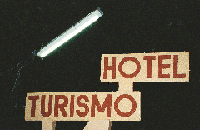
bass cl & computer
[2000]
Martin Wesley-Smith
"(His) music has never been far removed from political or social comment, and his gift for pastiche has served him well in adopting familiar styles, often (but not always) drawn from popular music, to ironic or satiric purposes."
"It is a masterpiece of music. I cried my eyes out until no tears were left. I felt the tragedy of East Timor perforating my bones as I never felt before. I'm going to buy the CD."
16'
X
cl & computer
[1999]
Martin Wesley-Smith
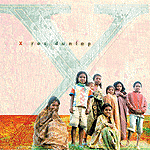
12'
Afghanistan multimedia:

Merry-Go-Round
or in its solo version
cl & computer
[2002]
Martin Wesley-Smith
and Alice Wesley-Smith
16'
Iraq multimedia:

Weapons of Mass Distortion
"When I use a word," Humpty Dumpty said, in rather a scornful tone, "it means just what I choose it to mean - neither more nor less."
"The question is," said Alice, "whether you can make words mean so many different things."
"The question is," said Humpty Dumpty, "which is to be master - that's all."
cl & computer
[2003]
Martin Wesley-Smith
cartoons by Steve Bell, Alan Moir, Peter Nicholson and others
some lyrics by Peter Wesley-Smith
choir: Canberra Choral Society
tenor soloist: David Hamilton
concept, music, programming, script etc:
Martin Wesley-Smith
13'
USA multimedia:

Time Chants
cl & computer
[1992]
Bruce Mahin
?'
West Papua multimedia:

Papua Merdeka

from Father Claude Mostowik, Director, Missionaries of the Sacred Heart [Australian Province], Peace and Justice Centre, to Senator Robert Hill, Minister for Defence, Parliament House, Canberra, ACT 2600, 31 October 2005:
bcl & computer
[2005]
Martin Wesley-Smith
West Papua Niugini/Irian Jaya Homepage:
www.converge.org.nz/wpapua/opm.html
www.westpapua.net/index.php
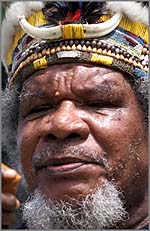
10'
pieces for clarinet & CD/electronics
include:
Aurora
Bastard's Broth
Circles in the Sun
For Clarinet & Tape
King Friday
Onomatopoeia
Polymorph
Trio
White Knight & Beaver
You Can Take It Anywhere
You Can Take It Anywhere
bass cl & delay
[1998/2001]
Judy Bailey

2-10'
Trio
bcl & CD
[1976]
Don Banks
7'
Circles in the Sun
cl & CD
[2002]
Jane Brockman
?
Tagore Songs
2. wept by the mad cadence of the storm
3. [not being performed on this tour]
4. Where Roads are made, I lose my way
cl & CD
[1997]
Jane Brockman
Concert music is such a magical medium - a fleeting abstract experience of the mind, which somehow changes us.
?
Polymorph
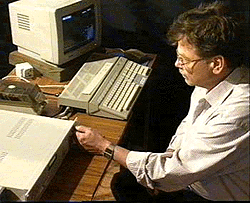
bcl & delay
[1978]
Rolf Gehlhaar
7'
Bastard's Broth
In 2001 Steve was a guest composer at the fifth Forum for Contemporary Piano Music in Heilbronn, Germany; in 2002 he was a guest professor in composition at the Musikhogskolan in Piteå, Sweden.
bass cl & CD
[1993]
Steve Ingham
5' 34"
King Friday
bass cl & CD
[1996]
Michael Lowenstern
5' 30"
Aurora
bass cl & CD
[2001]
Margery Smith/Will Frasier
10' 30"
For Clarinet & Tape
cl & CD
[1983]
Martin Wesley-Smith
11'
White Knight & Beaver
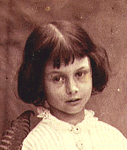
bass cl & CD
[1985]
Martin Wesley-Smith

9'
Onomatopoeia
bass cl & delay
[1984]
Nigel Westlake
7'
solo pieces include:
25 Measures
Chips Off the Ol' Block
Cut to the Chase
Frenzy and Folly, Fire and Joy
Hauturu
NRG
Off-Peak Single from Symi
Scream
Worldwhorls
NRG
bcl
[1996]
Gerard Brophy
3'
Worldwhorls
bcl
[2000]
Tony Gilbert
?'
Frenzy and Folly, Fire and Joy
cl solo
[1999]
Graham Hair
9'
25 Measures
cl solo
[1996]
Elena Kats-Chernin
1'
Chips Off the Ol' Block
cl solo
[1999]
Eric Mandat
4'
Hauturu
bass cl
[1992]
John Rimmer
9'
Character Sketches
(Movement 2: KP)
cl solo
[1973]
Marc Satterwhite
8'
Off-Peak Single from Symi
bcl
[2003]
Dave Smith
?'
Cut to the Chase
cl solo
[1996]
Richard Vella
45"
Scream
bass cl solo
[2000]
Paul Witney
lecture/demo topics include:
Musical Activism
Current Trends in Australian Music
New Australian Music for Clarinet
Carrollian Musical Processes
concert repertoire | lecture/demo topics | Dunlop & Wesley-Smith bios | pics | top of page
e-mail Ros | e-mail Martin | London review 1 | London review 2 | schedule
final schedule:
Tues Sept 27
depart Australia
Wed Sept 28
1pm: concert, University of Santa Clara, California
Thurs Sept 29
Fri Sept 30
interview, KPFK-FM
Sat Oct 1
8pm: concert, E Street Cafe, Encinitas, CA
Sun Oct 2
travel to Los Angeles; 3pm: concert, Cal State, then composer/performer seminar
Mon Oct 3
travel to St Louiseville, Kentucky; 8pm: concert, University of Kentucky, Louisville
Tues Oct 4
masterclasses, composer workshop, University of Kentucky, Louisville; evening flight to Radford, Virginia
Wed Oct 5
masterclasses, composer workshops, then concert, University of Radford, Virginia
Thurs Oct 6
Fri Oct 7
2015 hrs: travel to London
Sat Oct 8
1000 hrs: arr London
Sun Oct 9
Mon Oct 10
Ros: travel to Newcastle
Martin: travel to London
Tues Oct 11
Martin: travel to Newcastle
7.30pm: multimedia concert, St. Thomas's Church, Haymarket, Newcastle
for the North East England Support Group of the Medical Foundation for the Care of Victims of Torture, together with Tyneside East Timor Solidarity
Wed Oct 12
Ros travel by train to University of Glasgow, Scotland
Martin travel to Vilnius, Lithuania, to attend 5th International Music Theory Conference ("Principles of Musical Composition; Creative Process")
Thurs Oct 13
Ros: concert, University of Glasgow, Scotland;
Martin: give paper at 5th International Music Theory Conference, Vilnius
Fri Oct 14
Ros: 1pm: concert, University of Glasgow, Scotland, then travel to London
Martin: attend 5th International Music Theory Conference, Vilnius
Sat Oct 15
Ros: travel to Vilnius
5.30pm: multimedia concert, Academy of Music and Theatre, Vilnius
Sun Oct 16
Mon Oct 17
travel to London
Tues Oct 18
2.30-4.30pm: workshop & concert, Royal College of Music, London, UK
Wed Oct 19
drive to Kent
8pm: multimedia concert, Sandwich Technical College, Kent, UK
Thurs Oct 20
travel to Cork
Fri Oct 21
1pm: multimedia concert, University of Cork
travel to Amsterdam
Sat Oct 22
travel to Rotterdam
multimedia concert, International Bass Clarinet Festival
travel back to Amsterdam
Sun Oct 23
fly to Hong Kong
Mon Oct 24
Ros: continue to Australia
Martin: stay in Hong Kong
Tues Oct 25
Wed Oct 26
Martin: meeting at the Music Department, University of Hong Kong
4pm: composition seminar, Hong Kong Academy for the Performing Arts
return to Australia
concert repertoire | lecture/demo topics | Dunlop & Wesley-Smith bios | pics | top of page
e-mail Ros | e-mail Martin | Ros's home page | Martin's home page
London review 1 | London review 2 | schedule
Australian Multi-Media Works
reviewed by David Morris in Clarinet & Saxophone, London, Spring 2003
In another world, the fine golden screen at St Cyprian's provided a vivid backdrop for this multi-media programme. Before it stood a large screen of a different kind flanked by speakers on tall stands, and a modest projection and mixing desk set between the two front rows of the audience.
The evening opened with Gerard Brophy's Iza, a short but vigorous and warming duet for bass clarinets, performed by Natascha Briger and Ros Dunlop. Both players immediately established their proficiency, though throughout the evening it was the legato lines that fared best and sometimes a little of the rhythmic punch was lost to the big acoustic.
Down to business, however, and next was X by Martin Wesley-Smith. This was the first of several of his multi-media works, comprising slides, tape and clarinet. Lest there be any confusion, the slide show was not of the 'Could we have the next one, please Geoff' school, but a compelling sequence of images fading into one another, colours and textures constantly on the move, all under the control of the composer and his Macintosh. The tape merged broadcast sound bites with choral passages and electronic effects, big noise with jaunty instrumental numbers, all synchronised with the visual images. Over the top was Ros Dunlop's live clarinet. "X" refers to the resistance leader Xanana Gusmão, imprisoned in 1999 while the Indonesian military withdrew from East Timor. The images were brutal. So was the music, though the screaming clarinet might have benefited from some amplification to match the volume of the tape and heighten the anguish in the climactic passages. However, in quieter parts, Ros Dunlop's melancholy lines were serene.
Later came Wesley-Smith's short epic Welcome to the Hotel Turismo, in a similar format, but now observing the occupation of East Timor from the viewpoint of the eponymous hotel, still standing after all these years. No winds, just a cello and CD-ROM of sound bites and song, with a catchy refrain to rival anything by Don Henley. Despite the subject, the work had an easy flow and structure and Rachel Scott discharged the simultaneous vocal and amplified cello parts with passion and to great effect.
The item between these two was another worry given Amnesty International's past features on Central America. But the programmers were merciful and Stephen Ingham's Panama turned out to be a take on an old jazz standard, for clarinet, bass clarinet and a CD-ROM that provided a virtual jazz rhythm section to get the audience tapping along, if occasionally on the wrong beat.
The second half started in bright style with Tekee Tokee Tomak for clarinet and CD-ROM, Martin Wesley-Smith's portrayal of post-independence East Timor, full of smiling people and beautiful landscapes. For the next piece, the positive mood grabbed an attractive ideal and the two danced shoulder to shoulder in Dave Smith's snappily-titled Mitchell Principles and Laws on Central Albania, for two clarinets. The Mitchell in question appeared to be Ian, past Clarinet and Saxophone Society Chairman, who had premiered it, but his Principles were not obvious in this alternately angular and glissando-ridden romp. However, Natascha Briger and Ros Dunlop communicated the mood well here.
With Ros Dunlop back on bass clarinet and Martin Wesley-Smith on the CD-ROM, the evening was brought to a close with Merry-Go-Round, his treatment of contemporary Afghanistan. More scenes passed rapidly before us, including children and men having naive fun aboard a small home-made merry-go-round. This, we were told, was an allegory for the repeated invasions suffered by the people of Afghanistan, but it worked most powerfully as a striking reinforcement of common humanity.
In a multi-media show, attention is necessarily shared amongst the components. Music communicates, but to achieve a message as strong and specific as this, the various media components were tightly harnessed in support of the central theme. The clarinet as political blunt instrument. Placing the solo players beside a large bright screen, further from the audience and beyond the mixing console, visually reinforced the supporting nature of their role. However, with occasional balance problems against the tape at the climaxes and a big acoustic to fill, perhaps the clarinet writing didn't always get the attention it deserved. It would certainly have been more interesting to hear the clarinet lines more amplified, and perhaps for the instrumentalists to have been further forward.
Overall, the apolitical works set the human rights issues in perhaps greater relief, and ensured there was plenty of variation in the programme. The subject matter was often hard-hitting and it is unlikely anyone left the church unmoved, though not necessarily for musical reasons. "Tekee Tokee Tomak" apparently means something like "Let's all get together", and it was a refreshing experience to see our instrument used in support of such worldly issues.
TEKEE TOKEE TOMAK
February 6, 2003
St Cyprian's Church, London NW1
My diary tells me that I had a clarinet lesson on Monday 20th May last year. Strangely, it neglects to mention that on that same day, the people of East Timor gained their independence, dollowing 24 years of Indonesian occupation. This British Music Information Centre-supported concert in St Cyprian's Church was part of a tour by Ros Dunlop and Martin Wesley-Smith (the Tekee Tokee Tomak Tour) to raise awareness of the struggle of East Timor to recover from its recent history of seemingly often brutal oppression.
February 6, 2003
reviewed by Carmel Budiardjo
The name rings bells. The Wesley-Smith family has such a long association
with East Timor. Rob is an old friend, an activist like myself who went the
long haul for East Timor from obscurity in the 1970s to stunning success
and international recognition more than two decades later. But I still had
to find out what his composer brother was all about, and here at last was
the opportunity.
The venue of the concert was a church in north London and the performers
were two clarinetists and a cellist, with Martin busily pressing buttons on
a video machine. An unusual combination, something quite new in artistic
presentation. It was good too to see quite a crowd of East Timorese in the
audience, for this novel experience.
The concert bore the name Tekee, Tokee, Tomak, a Tetum phrase meaning
'Let's all get together'. Yes, indeed!
Martin is a composer of considerable talent and versatility who has hit on
the idea of audio-visual presentation for many of his compositions. And
what could be a more suitable medium for his music than East Timor with so
many visual records of its tragic experience.
Most of the music performed was programme music, telling a story that is
helped by the visual presentation. But I have to say that when I first
heard his composition, Welcome to the Hotel Turismo, some months earlier
without the visual presentation, performed by the first class cellist,
Rachel Scott, I was immediately taken by its shape, its changing moods and
colour. A sombre and serious piece, like his other work, X, celebrating the
outstanding role of the East Timorese leader, Xanana Gusmao. Tekee, Tokee,
Tomak is a much happier piece, in which one feels the joy and high spirits
of the East Timorese, at last savouring their independence.
Included in the programme was a composition by Dave Smith, called Mitchell's Principles Based on Albanian Laws, a piece full of dance-like melodies. I happened to be sitting next to an Albanian woman who showed her delight at the composition. with themes so familiar to her. The Klezmer-like character of this piece had a particular appeal to me and provided a good balance to the programme.
The clarinetists Ros Dunlop and Natascha Briger performed superbly well and the combination of sound and visuals worked extremely well in helping to give the compositions greater depth and to appeal to a very mixed audience.
The group are to be congratulated for bringing together this event which was both artistically rewarding and a powerful tribute to the courageous people of East Timor.
TEKEE TOKEE TOMAK
St Cyprian's Church, London NW1
It was a pleasant surprise to hear that Martin Wesley-Smith was in town and
would be presenting a concert of his music much of which is dedicated to
East Timor.
from e-mails received post-tour:
"What an experience! It was interesting and thought-provoking and so well performed. The audience was small, but I think very appreciative and attentive and absorbed in the whole experience. Thanks for arranging such an extraordinary program."
"Thanks for the great program here. Several of my students talked to me about the concert very enthusiastically."
"The performance yesterday was absolutely stunning - powerful and substantial, and beautifully crafted - if I had my way, I would require all of our students to see it since so much echoed essential principles of our University.
"Again on behalf of our faculty staff and students, thank you for reminding us that the performing arts are among the most effective tools we have for the promotion of justice in the world."
"Thanks so much for your visit ... I truly enjoyed your 'provocative' presentation."
Our thanks to the New South Wales Ministry for the Arts and its International Program for a grant that enabled this tour to go ahead.
1. from Radford, Virginia:
2. from the University of Northern Illinois:
3. from the University of Santa Clara:
4. from Bowling Green State University:
concert repertoire |
lecture/demo topics |
Dunlop & Wesley-Smith bios |
pics |
top of page
enquiries: e-mail Ros | e-mail Martin | Ros's home page | Martin's home page
schedule | London review 1 | London review 2
**
for concert organisers:
**
click here to download complete program notes, technical requirements, photos and other information
This tour was a great success, with two qualifications:
1. for family reasons, Martin had to miss the USA leg of the tour; and
2. the first concert - at the University of Santa Clara - was plagued by Ros's bass clarinet seizing up due to problems with temperature and humidity
comments received include the following:
"had the audience spellbound"
"Last night was truly memorable - you deliver a high-powered program! Thanks too for the marvellous performance of my piece ... your playing and you are amazing, and Martin's work has a lasting impact ..."
"I want to thank you for having the rare combination of musical perspicacity and intellectual courage to bring Ros Dunlop to Louisville. I have no doubt that you and the School of Music will be called to defend the poignant and explicit political critique that informs her choice of works ... I personally believe that it is always more important that music and its ancillary media be more substantially true to ardent conviction than tethered to superficial conventions of either form or content. Kudos to Ms. Dunlop, you and U of L!"
"Ros did a great concert last night"
"Thanks for your performance the other night. I though it was teriffic. I would have like to have just sat and watched the whole thing but work prevailed. Your playing was really spectactular!"
"Thank you, more than I can say, for coming to Newcastle and for the concert you gave. It was thought-provoking, moving, knowledge-building, heart-rending and beautiful; in other words it was a truly artistic and memorable evening ... The music was fascinating in itself, and your playing was tremendous, but the way you worked the music and images together was really marvellous. The images were so good, too, with such very high quality, beautifully composed photography."
"Music and film images very thought-provoking, including Papua Merdeka, Martin's most recent work ... A special thanks to Ros and Martin for coming to Newcastle, sharing their music and ideas with us"
"There's still a certain buzz about your concert. I am so glad we were finally able to make this happen, and perhaps we can again sometime."
report
John Kennedy, Cal State, Mon Oct 3 2005
composer Jane Brockman, Mon Oct 3 2005
a satisfied audience member, writing to the School of Music, University of Kentucky, Louisville, Tues Oct 4
Bruce P. Mahin, composer, Radford, Wed Oct 5 2005
Nancy May, Encinitas, Wed Oct 5 2005
Benjamin Hopkinson, Wed Oct 12 2005
Lidia, Secretary, Tyneside East Timor Solidarity, Newcastle (UK), Thurs Oct 13 2005
Marc Satterwhite, University of Louisville, Kentucky, Tues Nov 1 2005
Our thanks to the Music Board of The Australia Council for a Pathways Grant that enabled this tour to go ahead.
flags courtesy of ITA's
Flags of All Countries; used with permission.
site updated Nov 1 2005

